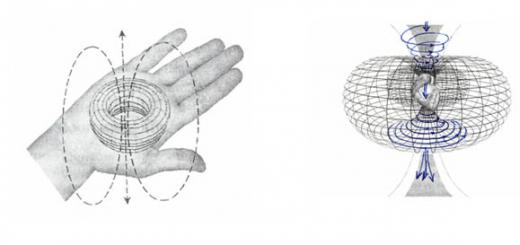To use the preview of presentations, create a Google account (account) and sign in: https://accounts.google.com
Slides captions:
Fundamentals of state and law Grade 11 Lesson number 16. Civil law and civil legal relationship 900igr.net
Lesson plan. 1. Sources of civil law. 2. Subject and method of civil law. 3. Elements of civil relations. 4. Legal facts and civil relations. 5. Types of civil relations.
1. Sources of civil law. 1.Civil Code The main regulator of commodity-money relations in the country. (The first part came into force on January 1, 1995, the second part - on March 1, 1996) 2. Federal laws Regulating relations that are the subject of civil law. 3. By-laws Decrees of the President, resolutions of the Government, acts of ministries and federal executive bodies. 4. Other sources For example, a custom.
2. Subject and method of civil law. Civil law Regulates a certain range of social relations, called the subject of civil law. Subject of civil law Property relations, i.e. relations that develop over material wealth. Associated with the ownership of certain property benefits (property relations) Associated with the transfer of property rights from one subject to another (contracts, inheritance, etc.) Group 1
2. Subject and method of civil law. Non-property relations related to property (copyright, use of trademarks, etc.) Group 2 Civil law regulation Also regulates: inalienable human rights and freedoms, and other non-material benefits. - life, health, honor and dignity of the individual, business reputation, privacy, personal and family secrets, and other relations between entrepreneurs, or with their participation
2. Subject and method of civil law. Civil law indicates the grounds under which the abstract-possible regulation turns into a real one. These grounds are called LEGAL FACTS Public relations after its settlement by civil law turns into a civil legal relationship: - it is a connection between the participants in a civil legal relationship, by virtue of which they act as holders of subjective civil rights.
3. Elements of civil relations. content Subjects Objects Subjects Bearers of civil powers (rights) and obligations- -Individuals, -Legal entities, -Russian Federation, -Subjects of the Russian Federation, -Municipalities, -Foreign states. - participation of at least 2 subjects is obligatory - an authorized (having rights) and an obligated party.
3. Elements of civil relations. Content The powers (rights) and obligations of its participants (subjects) - the rights of one party necessarily correspond to the legal obligations of the other. Civil legal relationship (It is divided depending on the content) Simple Complex - one authority corresponds to one obligation (loan agreement) - one authority corresponds to several obligations (contract for the carriage of goods)
3. Elements of civil relations. Object What the activities of the participants in the legal relationship are aimed at. Civil Code of the Russian Federation Article 128 Objects of legal relations things work and services information intellectual property intangible benefits
4. Legal facts and civil relations. legal fact A circumstance, with the presence or absence of which the law connects the emergence, change and termination of rights and obligations. Types of legal facts - agreements and transactions provided for by law, - agreements and transactions not provided for by law, but not contrary to it, - acts of state and municipal bodies, - court decisions, - creation of products of intellectual activity, - etc. classification of legal facts comes from various grounds
4. Legal facts and civil relations. 1. Events and actions - phenomena that occur regardless of the will of the subject. - phenomena occurring at the will of the subject. Absolute - death, natural action, etc. Relative - expiration of the contract. Lawful – meet the requirements of the law Illegal – do not meet the requirements of the law. Lawful actions Legal acts Legal acts
4. Legal facts and civil relations. Administrative or judicial acts of the transaction and court decisions establishing civil rights and obligations. Legal acts Legal actions - actions that entail civil law consequences when achieving a result, regardless of the direction of the will of the person committing a legal act (ex: treasure) TRANSACTIONS (the broadest and most important category of legal facts) - actions of subjects , specifically aimed at the emergence, change, or termination of civil legal relations
4. Legal facts and civil relations. TRANSACTIONS treaties unilateral actions tav). (ex: inheritance)
5. Types of civil relations. The division occurs depending on the criteria 1. Property and non-property a) Property: - object - this or that material good. - arise regarding the ownership of property, or the transfer of ownership from one entity to another. (statute of limitations applies to relations) b) Non-property: - object - non-property rights and intangible benefits. (no statute of limitations applies to relationships)
5. Types of civil relations. 2. Absolute and relative a) Absolute: - an authorized person (ex: owner) is opposed by an indefinitely wide range of obligated persons, - the behavior of obligated persons is not a violation of the rights of the Authorized Subject b) Relative: - one authorized person is opposed by a certain circle of obligated persons , (debtor-creditor) Depending on the number and certainty of the subject composition
5. Types of civil relations. 3. Real and obligatory a) Real: - the right is exercised through one's own actions (ex: the right of ownership), - protection of property rights is carried out on the basis of a real claim. b) Obligatory: - the right is exercised on the basis of the requirements of active action from the obligated person - the protection of the obligatory right is carried out on the basis of a claim for compensation for the incurred losses. at the core - a way of exercising the authority belonging to its bearer
It is not easy to start preparing for social studies from scratch. There is a high probability of going in the wrong direction and making mistakes that will kill all your efforts and attempts. They will merge them and take them away.
Studying only theory from a reference book or textbook is the first and most important mistake that can be made. Let's see why and how the exam in social studies is arranged. The article is long, but worth reading. So give her 15 minutes of your time and stop prepping mindlessly, just draining your time down the drain.
First you need to figure out the essence of the problem, why this particular, seemingly simple subject, is simply terrible in the country.
Part one. The secret of low USE scores in social studies
From year to year, the social studies exam kills the hope of hundreds of thousands of graduates for successful admission.
For all the seeming simplicity of this subject, the way teachers present it to you, they pass it very badly. And all their advice is similar to how to solve the problems of Salem's cat.
What's stopping you from getting high scores?
- Preparation begins with thoughts: “Yes, it’s about life, somehow I’ll hand it over.” The same idea is supported by the lion's share of teachers until the first sample, which, at best, takes place after the new year. There it already becomes clear that the exam is nowhere about life, and then grief-preparation begins. After trying to google the solution to the problem, a person comes to Baranov's reference book or a tutor, who also gives reprinted (at best) material from this reference book. You get an installation: supposedly you need to learn the material from it and everything will be fine. But no - it doesn't roll. This is how the national average result of 53 points is born.
- The process of teaching social studies in school is terrible. Having opened the textbook, it is not clear why the subject exists, how to study the material from it and how to apply it. And the variety of unnecessary facts and terms, painted, as if for a fifth-grader of an ordinary school, in abstruse language, horrifies.
...
This discourages the student's interest in the events taking place in the world; fear of philosophy as a science and total legal illiteracy. It leads to fear of the economy, interaction with state structures. It also discourages the love of reading non-fiction, complete ignorance of the biographies of great people. Without a competent teacher or a long and thorough preparation on your own, simultaneously stuffing bumps, it is simply impossible to understand the variety of text “about nothing” - it’s just “water”. Understanding is reading a textbook or watching a video tutorial does not give.
...
Open any textbook on social studies, read a chapter from it and try to solve the USE test on the topic. You will fail badly only because in schools, most training courses do not even explain what an aspect, a semantic core is. Leaving this behind the scenes in training - the student looks at the object with disgust, scores, and in the end he is here. And he is not alone, there are hundreds of thousands of them all over the country.
- Online courses on YouTube channels, VKontakte groups and Instagram publics, which you have already subscribed to, are only suitable for repeating or consolidating material. If you are preparing from ZERO, you will simply drown in information, it will absorb you. Webinars, public summaries and explainer videos simply retell the textbook, perhaps in even simpler language than in the book. But there is one thing: they do not teach how to apply knowledge, use it, and therefore, if you do not have two or three years left to fill bumps, they will lead to poor results in preparation for the year. As a result, students give up the idea of taking the exam or get an extremely low result on the exam.
Check my words yourself.
Before you is the first video tutorial in the issuance of YouTube for the query “Political process and participation. Social science. Unified State Examination"
Your first assignment is the following. Watch the video, and then try to complete the RESHUEGE test on this topic. I am sure the result will discourage you if you are a beginner and with social studies on “You”.
Start test
Well, how are the results? Take the survey and tell us about your progress.
Take the Survey
Did you complete the task?
In the next part, we will talk about what steps you need to go through in order to study the material correctly, without cramming and with results.

Social science is a subject that requires knowledge in the field of economics, philosophy, politics. It is realistic to prepare yourself in 2-3 months. The main thing is to correctly allocate time and solve tests.
First part KIM in social studies in 2020 - the student needs to answer 20 questions. The answer should be short. 2-3 answers may be correct. In this work, you need to be able to analyze tables, diagrams, diagrams, search for the necessary information, systematize knowledge.
In the second part you need to give a detailed answer. Here you need to answer the conditions of a specific task. It is important to be able to work with the text, formulate an opinion and give arguments. When answering a question, you need to make a detailed plan.
Working with an essay You need to choose one of five topics. Topics are statements of figures of science, culture, politics. Each topic is related to the science block of the course. A student can reveal it in the context of one science or several. Here it is important to study theoretical positions, formulate arguments, give specific examples.
- Correctly allocate time for preparation.
- Before answering, please read the assignment to the end.
- Learn basic terms, definitions.
- Solve KIMs and identify places where difficulties arise.
- First complete the simple tasks, then move on to those where difficulties arise.
- For preparation, use diagrams, tables, manuals, textbooks.
- Carefully study diagrams, tables, information blocks, and only then proceed to the tasks.
- In the second part, answer the questions clearly. Check wording.
- In the essay, use the knowledge of the course and prove the point of view.
- It is better to start preparing early, because at the last moment everything will get confused in your head, and this will affect low scores.
Not a single textbook will fully reveal all the questions of the course. It is advisable to study 2-3 textbooks.
Reading, memory, and the ability to correctly express one's thoughts will help to pass the exam well. With the right approach, you can prepare in two to three months.
What errors occur in the exam?
In tasks with a detailed answer, you need to write 2 examples of functions, principles from the text. Students copy a piece of text on the form instead of briefly answering the question. The verifier will not search for the necessary phrases and the points will not be counted. You need to write structured and put the numbering.
In the task where you need to name the species and give examples, also must be answered concisely so that the inspectors understand what to relate to.
Schoolchildren use materials with ready-made plans, but encyclopedic knowledge is not required. Memorizing perfect essays will not bring any additional points.
It is impossible to know by heart this or that material. The main thing in the preparation process is to get acquainted with the theory and learn how to bring arguments for your position. When compiling a detailed answer, you need to show how the student understood the idea, justify it and give an example. To easily cope with writing the exam, you need to practice this at least ten times.
Often mistakes are made through carelessness. Where you need to write one word, students write sentences. When performing KIMs, it is important to carefully read the task and do what is required. Additional work will not bring additional points on the exam.
You need to prepare only according to the textbooks of new editions, as the information becomes outdated. When answering questions, you need to use simple language and do not write abstruse phrases. A graduate may lose a point if he focuses on building a complex sentence, rather than a correct one. Terms should be used where appropriate.
What to use for preparation?

- We advise you to pick up several textbooks, for example, the textbook "Foxford" and Bogolyubova. These manuals have all the theory that will be required for the exam.
- Demos. Plans can be written by codifiers on the FIPI website. They are very similar to what will be on the exam. All tasks from the demo version need to be solved. To expand your vocabulary, you need to read, for example, political and economic news. If there are unfamiliar terms, you need to find their meaning in the explanatory dictionary.
- The most difficult topic for students is politics. This section needs more time. You can make a table, draw a diagram, come up with an association in order to better remember information.
- Needed in class listen carefully to the teacher, read through the entire material with a pencil in hand. It's better to ask questions and not memorize exactly the answers.
When completing tasks, you do not need to jump. Some of the questions may seem familiar, but you still need to finish reading them. It is useful to study the material and then discuss it in class or with the children. In the process of familiarization, many questions should arise and do not be shy to ask.
Incomprehensible terms are best looked at immediately in the explanatory dictionary. Written answers should be written clearly, written in plain language and abstruse phrases should not be used.
Before giving answers, think again, return to the question, understand what structure to formulate information. If some data is not remembered, come up with an association.
Added materials to the exam in social studies:
● short course of general theory
● theory on the section "Man and Society"
● theory in the section "Economics"
● useful notes (the entire course of social studies) in diagrams in the usual and reduced form
● terminological dictionaries (detailed and short)
● about 200 ready-made response plans (task No. 35)
● tables in pictures and in doc format
● 150 essays
● essay arguments on 69 issues
● thematic tables
● tables according to the course of the school curriculum ( social science, right, economy)
Bonus:
✓ Writing an essay on social studies
✓ Scale for transferring USE scores 2020
✓ How to make cheat sheets based on downloaded materials
✓ Social studies video lessons
✓ Benefits for social studies USE 2020
I Society
1. Social science
2. Society and its types
3. Sphere of public life
4. Development of society. Progress
5.Global problems of our time
6.Freedom
7.Equality
8. Man, individual, personality
9.Psychological characteristics of personality
II Consciousness and activity
10.Activity
11. Variety of activities
12.Activity and communication
13. Conscious and unconscious
14. Theory of knowledge
15. Types of cognitive activity
III Spiritual life of society
16. Culture spiritual and material
17. Art
18. Religion
19. Basis of philosophy
20.Education
21. Science and scientific and technological revolution
22. Worldview, belief, faith
23. Moral
IV Socialization of the individual
24. Social structure and social relations
25.Nation and interethnic relations
26. Family
27.Children and youth
28. Social status of the individual
29. Social norms and deviant behavior
V Politics and political culture
30.Politics
31. Power
32.Political system
33. State
34. Political regime
35. The principle of separation of powers
36.Local self-government
VI Law and legal culture
37. The concept of law
38. System of law
39. Sources (forms) of law
40. Legal relations
41. Offense and legal liability
42. Human rights
VII Economics
43. Economy and its role in society
44. State and economy
45.Money and financial institutions
46. Market and production
47. Business and entrepreneurship
Spiritual life of society
1) art and its types
2) culture and its functions
3) morality and its functions
4) science, its types and functions
5) education and its functions
6) religion, its types and functions
7) forms and varieties of culture
8)Art features
Society
1) Western and Eastern civilizations
2) socio-economic formations
3) types of socio-economic formations
4) social development: civilizational and formational approaches
5) society and nature
6) basic approaches to the theory of civilization
7) the main ways of social development
8) the main areas of society
9) the concept of civilization
10) progress and regress, progress criteria
11) the essence of the global problems of our time
12) types of society (comparison)
Cognition
1) truth and its criteria
2) the variety of forms of human knowledge
3) scientific knowledge
4) knowledge of the world
5) social cognition
6) empiricism and rationalism - the main directions in the theory of knowledge
Politics
1) types of monarchies and their signs
2) types of political parties and their features
3) types of the republic and its signs
4) power and its types
5) the state, its features and functions
6) civil society - prerequisites for the formation and structure
7) civil society - stages of formation and functions
8) democracy - essence, principles and types
9) electoral systems
10) political ideology and its main types
11) the political system of society and its functions
12) political parties
13) rule of law
14) the essence of the mechanism of the state
15) the theory of separation of powers
16)state shape
17) forms of state-territorial structure
18) functions of a political party
Right
1) types of regulatory legal acts
2) source of law and its types
3) the constitution in the hierarchy of legal acts
4) human rights under the constitution of the Russian Federation
5) offense, its signs and types
6) offense and its structure
7) system of law
8) judiciary
9) the essence of law
10) legal liability
social relations
1) types of social conflicts
2) family classification
3) the main trends in the social structure of Russian society
4) social mobility and its types
5) social norm
6) social community and its types
7) social system
8) social groups
9) social conflict
10) the social status of the individual
Human
1) the unconscious in personality
2) views on the origin of man
3) activity
4) individual. individuality. Personality
5) the concept of the meaning of life
6) the origin of man and his essence
7) human social activity
8) the essence of being
Economic sphere of society
1) banking system
2) types of markets
3) salary
4) inflation and its types
5) capital and its types
6) credit and principles of credit
7) monopoly, its forms and their features
8) taxes
9) entrepreneurship
10) market - conditions of occurrence, types and functions
11) property, its types and forms
12) economic system and its main types.
The exam in social studies is very popular among schoolchildren. The exam is considered easy: no need to do calculations, no need for laborious calculations. This ease is deceptive, and passing the exam can be difficult for two reasons. Firstly, the social studies course consists of several sections that are only conditionally related to each other, so it can be difficult to structure the acquired knowledge. Secondly, during the test, you will have to quickly switch between different sections, which will require composure, the ability to concentrate.
Item Features
Social science is a discipline that includes a complex of sciences, one way or another related to society. These are sociology, psychology, social philosophy, history, history, cultural studies, political science, economics, jurisprudence, ethics, etc.
The course is divided into several topics:
- Man and society
- Right
- Politics
- Economy
- social relations
The exam will ask you questions on all of these topics. Coping with tasks without preparation will be very difficult even for those who received good grades in social studies classes from the fifth to the eleventh grade. It is necessary to refresh knowledge, remember definitions, systematize what has been covered. This requires the study of theory in social science.
Exam
Each exam ticket contains four types of tasks:
- with the need to select one or more correct answers;
- to identify the structural elements of concepts;
- on knowledge of terminology, definition of concepts;
- to match positions.
For 20 tasks it is required to give a short answer, for 9 - a detailed one. Graduates will also have to write an essay. When passing an exam, it is impossible to do without knowing the theory.
Preparation for the exam in social studies
- Start preparing early. The subject only at first glance seems easy: getting the highest score is not so easy.
- In the process of preparation, you will have to learn by heart many terms and definitions. You should not just mechanically cram the wordings, facts, events, names proposed in the textbook. Try to understand the essence, and then it will be easier for you to remember the material.
- Everything that you need to learn by heart, write out in a special notebook.
- Start with tasks that seem easy to you. You should not skip them - even if you are confident in yourself, it does not hurt to refresh your knowledge.
- After that, move on to more complex topics. Study the theory, repeat the definitions several times, and then proceed to the practical exercises. Finally, again make sure you remember the terminology accurately.
- When doing trial options, practice reading the questions carefully. Practice shows that misunderstanding of questions is one of the common causes of errors.
- Experienced tutors recommend starting training in December-January with the study of economics. This section is small.
- After that, you should take on the most difficult thing - the right. Practice shows that it is this section of social science that causes the greatest difficulties for graduates. Spend more time studying the law.
- Social relations, man and society are relatively simple sections. They can be taken as a last resort.
- Ideally, the study of theory should be completed in April. After that, give yourself a little rest and do the repetition. Make sure you remember all the wording and definitions, you can repeat all the legal acts by heart.










